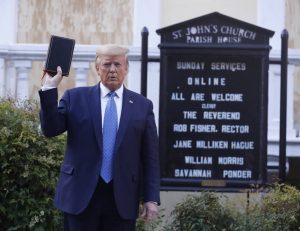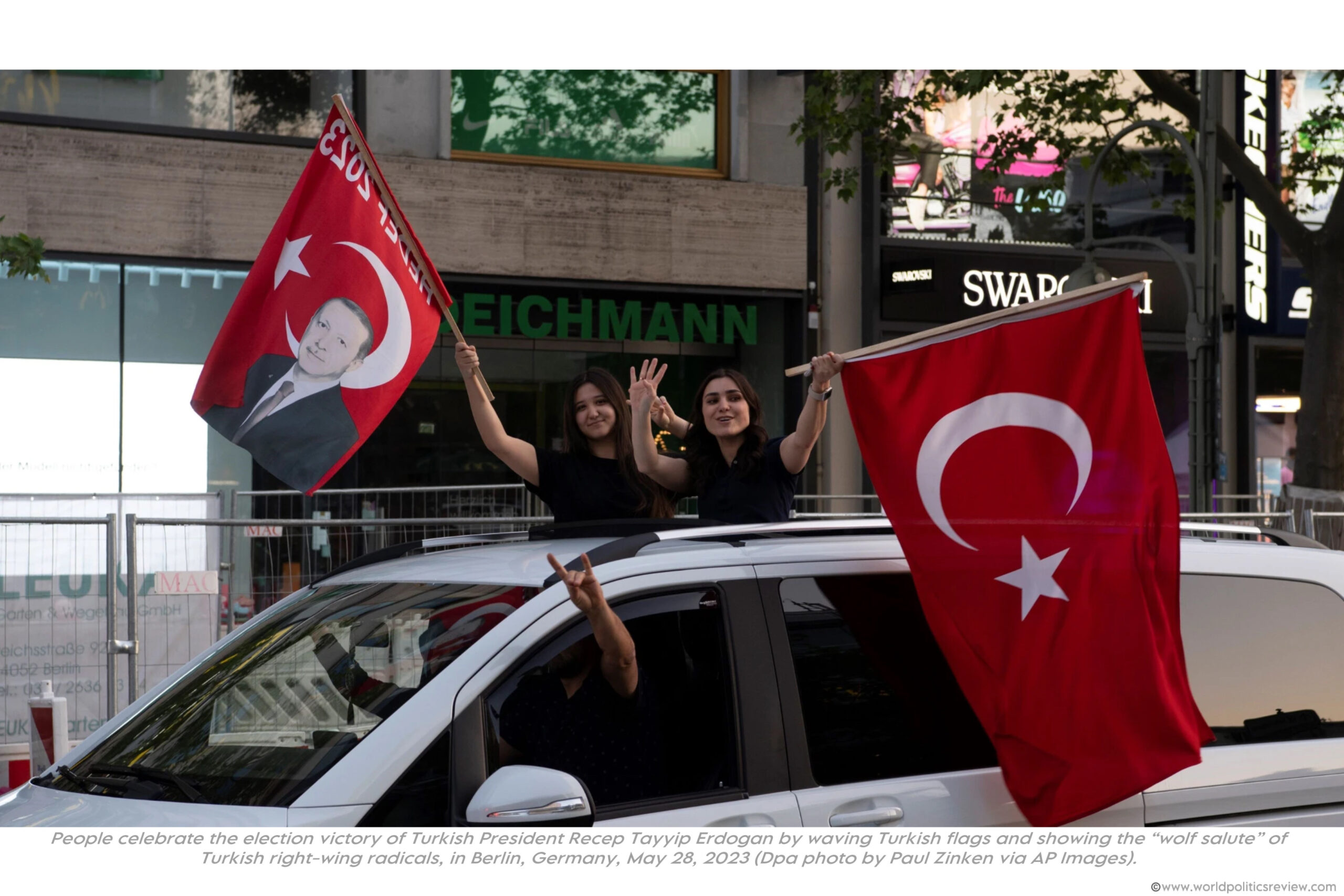Will COVID-19 lead to increased nationalist exclusionary and defensive attitudes among the religious, or might it be the cure that leads to radical social reorientation with a new emphasis on collective solidarity?

Around the world, religion has come into focus as a central point of controversy and praise during the COVID-19 pandemic. Strict social distancing policies have raised thorny religious freedom issues and religious communities have faced criticism for noncompliance to the lockdown. At the same time, faith communities have also received praise for their relevance to the psychological and social needs of people in distress.
Amid this patchwork set of religious responses to the pandemic, one issue has become increasingly evident: religion has become deeply national during the course of the last several decades. But will COVID-19 lead to increased nationalist exclusionary and defensive attitudes among the religious, or might the pandemic be the cure that leads to radical social reorientation with a new emphasis on collective solidarity?
The Alliance of Religion and Nation in the Pandemic
To date, most of religious responses to the pandemic have played out at the national level, varying within the same religious tradition. For example, Muslim communities in France and Germany have accepted the shutdown of mosques with no strong resistance, but the same restrictions generated an internal controversy within Muslim groups in the UK and have been strongly opposed in Iran and Pakistan. Similarly, some Ultra-Orthodox Jews in Israel and Orthodox Christians in Greece have resisted the lockdown while others have complied with it.
The fact that religious communities are acting and reacting at the level of the nation-state is not really surprising. After all, the state has been the key political institution to address the social, economic, and health issues raised by the pandemic. For long-time observers of international politics, however, this trend far predates the current global crisis. Even in countries with historically minimal state inference like the United States, the exceptional powers to monitor and control citizens and activities in the name of security have steadily increased since 9/11 and will not go away. That is why the current situation illustrates once more the key status of state institutions to face global challenges, in this case public health.
The dangerous reality is that this invigoration of the state converges with political trends which in the last two decades have emphasized localism and protectionism, from “America First” to Brexit. Along this line, the already fragile status of the EU appears even more so in the current turmoil. Angela Merkel, in her state of emergency address to her fellow Germans, did not mention the EU once. Border controls have been restored for the sake of limiting the spread of the disease. And the EU has been criticized widely by its members for its inefficiency and lack of solidarity towards Italy, France, and Spain, which are severely hit by the pandemic.
The mixed bag of acceptance and rejection to state COVID lockdown policies mentioned above is of the rather innocuous sort. There is, however, currently also a much more vicious alignment of religion and nation, where religious communities are working hand in glove with nationalist leaders. Take for instance the trending #CoronaJihad, a social media movement started by Hindu nationalists who blame Muslims for coronavirus in India, not to mention that Muslims are segregated or even denied treatment in hospitals throughout the country. Similar anti-Islam discourse has been on the rise in Europe and the United States, where some depict Muslims as responsible for the virus because of unfounded reports that mosques remain open for religious gatherings.

Alternative Path to Solidarity?
The national community functioning as the meaningful collective entity will not disappear with the coronavirus. Populist movements on the rise before COVID-19 were already expressing such a trend. It is then tempting to predict that post-coronavirus, we will witness the exacerbation of intolerance, as well as social, religious, and cultural tensions.
Religion is, however, also uniquely positioned to open up new paths of thinking about individual responsibility and community. Coronavirus has brutally made us conscious of the danger of what President Herbert Hoover called “rugged individualism” by showing that the attitude of one endangers the safety of others. Religious groups have long-standing experience in striking a meaningful balance between preservation of the community and personal fulfillment. It is therefore not surprising that some religious responses signal the growing awareness among us that “nobody is an island.”
While across traditions the debate has been raging about the limitations of religious practice caused by the lockdown, this highly publicized resistance hides the fact that most of religious voices across traditions have supported the lockdown because of its ultimate goal of saving lives, which is central to all religious teachings. At the same time, religious groups have worked to keep the community spirit alive to avoid personal isolation and despair. They have been the first to insist on the need for social solidarity to counter physical distancing. Since the beginning of the lockdown, religious communities have engaged in multiple activities online, from worship to psychological care, to financial support and assistance for the distraught members of their congregation and beyond.
Religion and the post-COVID Order
Ultimately, it is unclear how the chips will fall after the COVID crisis subsides. The positive potential of religion is certainly present.According to research in cultural psychology, groups exposed to risk show greater respect for the common good and tend to prioritize societal interests. In this respect, faith communities have moral resources to help rebuild trust in political communities, seriously weakened by the ongoing crisis.
In liberal democracies, the state responses, including the existing dilemma in the US of reopening or not reopening shed an unforgiving light on the supremacy of the market as the panacea to economic crisis and social inequalities. But religions have the resources to shape alternative responses. As emphasized by Pope Francis, value is not simply monetary, and it may be time to rethink global economy by including other human factors in our scenarios for development and growth. Additionally, political success is not exclusively grounded in material prosperity. It also entails public morality and protection of human dignity toward which religions have much to offer.
On June 1, all American religious leaders were to participate in a national day of mourning for the victims of COVID19. The protests of the last two days against racial injustice after the death of George Floyd in Minneapolis have brought together the issues of racism and pandemics. As expressed by rabbi Rick Jacobs of the Union for Reform Judaism, “We could treat all of these things as separate … but I do think there’s an intersection” given the pandemic’s outsized effect on communities already struggling with racism.” In the same article, Rev.Jacqui Lewis from New York City Middle Collegiate Church said:” Grief is not enough. Prayer is not enough,“ (…) “It’s a baby, first step for denominations to decry the violence. The next step is, what will you do to make sure your congregations are not racist?”.
Only the next months will tell us how these different trends will unfold. Early indicators show that the pandemics is affecting the privileged relation between some religious groups and their state: the state restrictions over religious practices in Russia have eroded the trust between the Russian Orthodox Church and Putin, while the support of Trump by white evangelicals has started to weaken. What is clear is that the religious global solidarity over COVID19 has not yet overcome national concerns.






